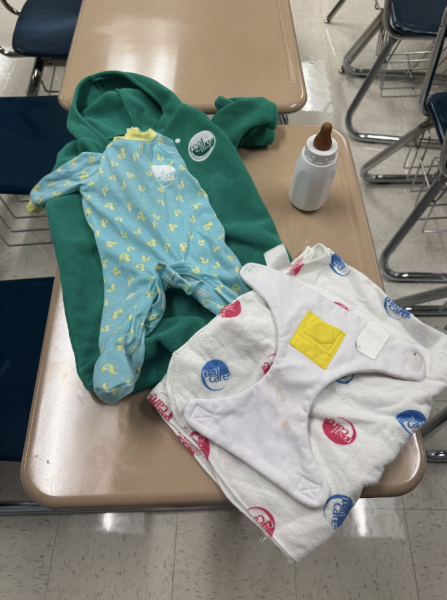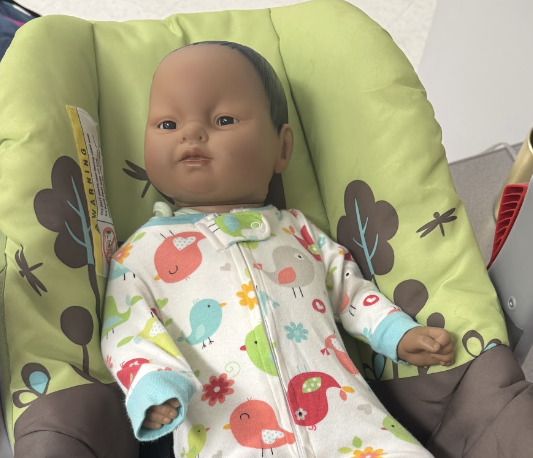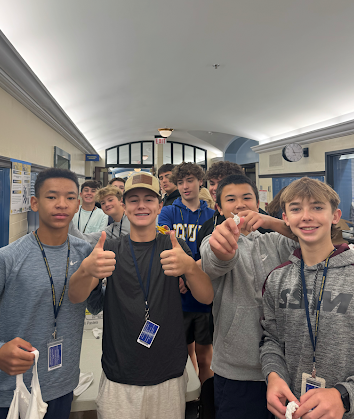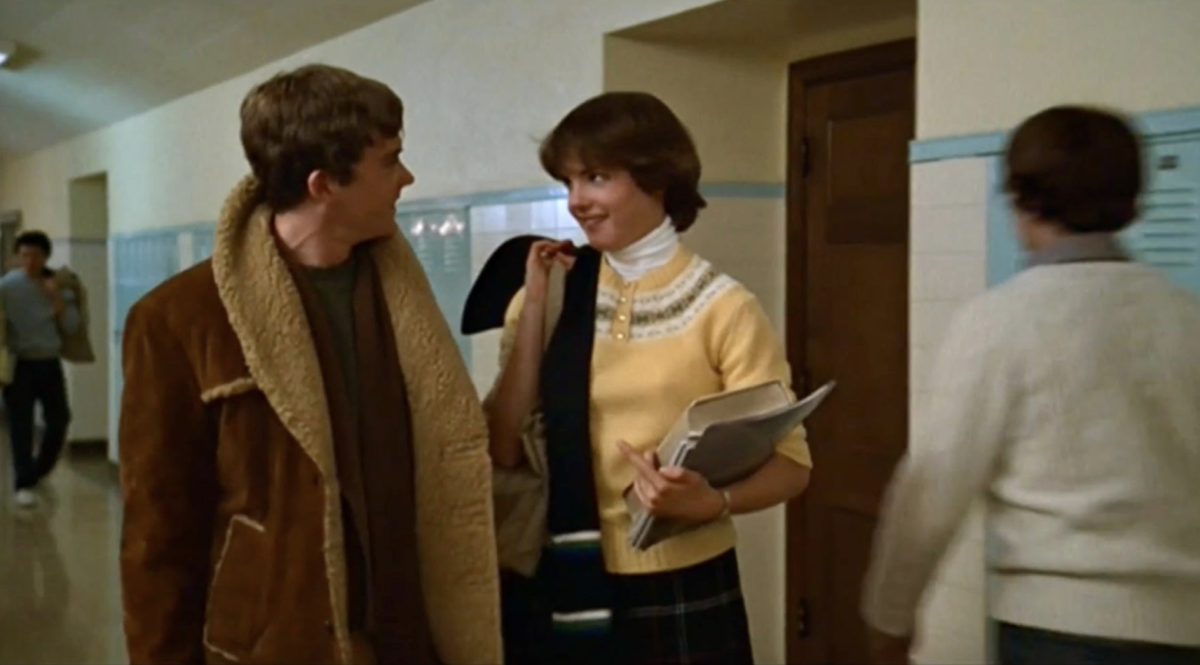For more than 10 years, some juniors and seniors have been parents for a day in their Advanced Health classes.
In early October, the students were taught how to care for the “Real Care” hyper realistic babies.
Then, for extra credit, they could opt to wear a pregnant belly or care for a baby for one to two days. At 8 a.m. on Oct. 21 the first batch of students picked up their babies. The project is designed to offer a fun and educational way to learn about proper baby care.
“When I was in high school, we carried around flour sacks or eggs to simulate parenting,” Advanced Health teacher Mrs. Anderson said. ”This program gives a much more lifelike experience.”
The reason the babies are so realistic is because they’re based on real babies’ schedules.
“The core of the program is a parenting simulation using Baby Think It Over, a computerized infant simulator,” Mrs. Anderson said.
Real parents were tasked with recording the different kinds of care they performed over a 24 hour period to form these schedules. Each baby is different, and students can’t tell if they’ll get a low or high care baby.
Once the students picked which baby they wanted, they were given a parent ID wristband. The wristbands must be scanned on a sensor either on the baby’s shoulder or back before the student administers the type of care required.

However, there’s no way to know what care the baby needs. They might require feeding, a diaper or clothing change, burping, or being rocked back and forth. Students have to cycle through each option until they find the correct one. If they forget to scan the wristband, the program won’t record it, and they’ll lose extra credit. Many students go into the project thinking it will be easy, but are quickly mistaken.
Because of the wristband, there’s no keeping the baby outside of your room or ignoring it during a shower. This means waking up in the middle of the night just like real parents to a slightly irritating, crying baby.
“It ended up crying somewhat often during the night, three times around 1 am, once at 3 am, and again at 5 am. The feeding alone takes 15 minutes; I was so tired, and it was a school night,” senior Bri Hymans said.
There’s also the risk of the baby yelling. They’re very sensitive, and if at any point when being held their head isn’t supported, they’ll start crying loudly for at least 2 minutes when being rocked.
The morning after the students picked up their baby, they have the chance to extend their time with it, although it has never happened.
“I always say the same thing, ‘do the 24 hour experience and if you would like to extend it, I would be happy to do that for you,” Mrs. Anderson said. “No one has extended the experience. They are running to return the baby the next day. Parenting is a 24 hour job.”
Despite the difficulties, students always come back feeling like they’ve learned what parenting really takes, and even recommend it to other students.
“I would recommend other students to do it. I thought it was fun, but sometimes embarrassing when it cried in class… I learned a lot about how to care for babies,” Hymans said.








